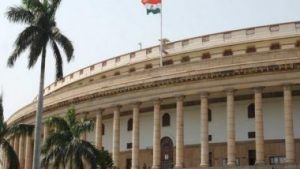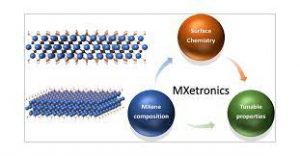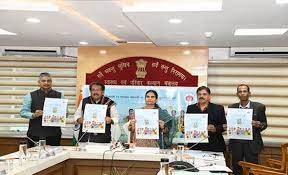Today’s Current Affairs: 9th Feb 2024 for UPSC IAS exams, State PSC exams, SSC CGL, State SSC, RRB, Railways, Banking Exam & IBPS, etc
Table of Contents
e-NAM : Surge FY2024

Farm-gate, inter-mandi e-NAM sales show surge in FY2024.
- The total traded value of commodities on the digital platform using the farmgate model during April – January, 2023-24 has been Rs 79 crore compared to a very small amount traded last fiscal.
- eNAM platform is an online trading platform for agricultural commodities in India.
- It was launched in 2016 as a pan-India electronic trade portal linking agricultural produce market committees (APMCs) across all states.
- It was launched with the objective of integrating the existing Mandis into a “One Nation One Market” for agricultural commodities in India.
- It facilitates farmers, traders, and buyers with online trading in commodities.
- It provides for contactless remote bidding and mobile-based anytime payment for which traders do not need to either visit mandis or banks for the same.
- Small Farmers Agribusiness Consortium (SFAC) is the lead agency for implementing e-NAM.
- It functions under the aegis of the Ministry of Agriculture and Farmers’ Welfare.
Constitution (J&K) ST Order (Amendment) Bill, 2024:

The Lok Sabha has passed the Constitution (Jammu and Kashmir) Scheduled Tribes Order (Amendment) Bill, 2024, aiming to include specific ethnic groups and tribes from Jammu and Kashmir into the list of Scheduled Tribes.
- The Union government has also introduced the Jammu and Kashmir Local Bodies Laws (Amendment) Bill, 2024 to provide reservation to Other Backward Classes (OBCs) in panchayats and Municipal Bodies of Jammu and Kashmir.
- Constitution (Jammu and Kashmir) Scheduled Tribes Order (Amendment) Bill, 2024 particularly focuses on including four ethnic groups in the list of Scheduled Tribes (STs) in Jammu and Kashmir.
- The ethnic groups are Gadda Brahmin, Koli, Paddari Tribe, and Pahari Ethnic Group”.
- By extending Scheduled Tribe status to these communities, the bill intends to ensure their socio-economic and political empowerment.
- The bill ensures that the reservations for these existing communities such as Gujjars and Bakarwals remain unaffected while providing new reservations for the newly listed STs.
- Gujjars and Bakarwals are nomadic — they migrate with their livestock to the higher reaches in the summer, and return before the onset of winter.
- The bill is seen as a significant step towards inclusive development in Jammu and Kashmir, aligning with the government’s commitment to the holistic development of all sections and communities under the “Sabka Sath, Sabka Vishwas” (Together with All, Trust of All) mantra.
Maa Kamakhya Divya Pariyojana:

The Indian Prime Minister laid the foundation stone of Maa Kamakhya Divya Pariyojana (Maa Kamakhya Access Corridor).
- It has been sanctioned under the Prime Minister’s Development Initiative for North Eastern Region (PM-DevINE) scheme.
- Situated on the Nilachal hills in Guwahati, Assam, Kamakhya temple is a significant pilgrimage centre.
- The temple is dedicated to different forms of Mother Shakti, namely Sundari, Tripura, Tara, Bhuvaneshvari, Bagalamukhi and Chinnamasta.
- Ambubachi Mela is one of the major festivals of this temple.
- The festival is held every year to commemorate the yearly menstruation of Goddess Kamakhya.
Supreme Court Of India (SC) : Diamond Jubilee Celebration

The Supreme Court of India (SC) held its Diamond Jubilee Celebration (75th anniversary) at the Supreme Court Auditorium in Delhi. It also coincides with the 75th anniversary of the Indian Constitution.
- The event witnessed the launch of several citizen-centric information and technology initiatives aimed at enhancing judicial accessibility and transparency.
- Digital initiatives, including the Digital Supreme Court Reports (Digi SCR) and Digital Courts 2.0 and a revamped SC website were launched as a part of the event.
- The Digital Supreme Court Reports (Digi SCR) initiative aims to provide free, electronic access to Supreme Court judgments since 1950, fostering transparency and accessibility.
- Digital Courts 2.0, leveraging AI for real-time transcription of court proceedings, represents a significant leap towards efficient record-keeping and judicial processes.
- The revamped Supreme Court website, available in bilingual format (English and Hindi), offers a user-friendly interface for seamless access to judicial information.
- Efforts to enhance accessibility to justice, particularly in remote areas, were emphasised, with a focus on expanding the reach of the Supreme Court.
- Investments in physical infrastructure, such as the expansion of the Supreme Court Building Complex, were also highlighted as crucial steps towards bolstering judicial efficiency.
Support To Students For Participating In Competitions Abroad (SSPCA) Initiative:

The All India Council for Technical Education (AICTE) recently introduced a scheme named ‘Support to Students for Participating in Competitions Abroad’ (SSPCA).
- Support to Students for Participating in Competitions Abroad (SSPCA) is an initiative of the All India Council for Technical Education (AICTE) aimed at bolstering the global competitiveness of Indian students in technical education.
- It is designed to financially support students aspiring to compete in international scientific events.
- Under the SSPCA scheme, individual students or student teams are eligible to receive travel grants to partake in international competitions.
- The assistance encompasses financial aid, mentorship, logistical support, and networking opportunities, enabling students to represent India on a global platform effectively.
- Financial aid provided by the AICTE scheme reaches up to Rs 2 lakh per student, covering various expenses like international and domestic travel, registration fees, visa applications, accommodation, airport taxes, travel insurance, and equipment costs related to the competition.
- Eligibility extends to students enrolled in diploma, B.E./B. Tech, integrated M. Tech, and M./M. Tech programs in AICTE-approved institutions.
- Each team of students is eligible for financial support under the scheme once during their course of study.
World Sustainable Development Summit (WSDS) 2024:

The Vice-President inaugurated the World Sustainable Development Summit in New Delhi recently.
- World Sustainable Development (WSDS) Summit is the annual flagship event of the Energy and Resources Institute (TERI).
- Instituted in 2001, the Summit series has a legacy of over two decades of making ‘sustainable development’ a globally shared goal.
- It is the only independently convened international summit on sustainable development and environment, based in the Global South.
- WSDS strives to provide long-term solutions for the benefit of global communities by assembling the world’s most enlightened leaders and thinkers on a single platform.
- WSDS 2024 is the 23rd edition of the summit.
- WSDS 2024 will take place on the theme ‘Leadership for the Sustainable Development and Climate Justice’.
MXenes : Study

Researchers recently reported on the potential of using MXene coatings that can guide microwaves in space and lighten satellite payloads.
- MXenes, first discovered in 2011, are ceramics that comprise one of the largest families of two-dimensional (2D) materials.
- Unlike most 2D ceramics, MXenes have inherently good conductivity and excellent volumetric capacitance because they are molecular sheets made from the carbides and nitrides of transition metals like titanium.
- They are made from a bulk crystal called MAX.
- Among various types of MXenes, titanium carbide (Ti3C2Tx) is the most widely used.
- Some potential applications of MXenes include energy storage (such as lithium-ion batteries and supercapacitors) due to their high conductivity and large surface area, electromagnetic interference shielding, catalysis, sensors, and water purification, among others.
PLI Scheme For White Goods:

An official statement said that applications of certain companies for claiming incentives under the Production-linked Incentive (PLI) scheme for white goods (Air Conditioners and LED Lights) are under examination and there is no delay in disbursement.
- PLI scheme for White Goods is designed to create a complete component ecosystem for the Air Conditioners and LED Lights industry in India and make India an integral part of the global supply chains.
- The scheme was notified by the Department for Promotion of Industry and Internal Trade (DPIIT) in 2021.
- The scheme will be implemented as a pan-India scheme and is not specific to any location, area or segment of population.
- It proposes a financial incentive to boost domestic manufacturing and attract large investments in the White Goods manufacturing value chain.
- Its prime objectives include removing sectoral disabilities, creating economies of scale, enhancing exports, and creating a robust component ecosystem and employment generation.
Kilkari Programme:

The Union Ministers of State for Health and Family Welfare virtually launched the Kilkari programme, a Mobile Health (m-health) initiative for beneficiaries in local content in Gujarat and Maharashtra.
- Kilkari programme is a centralised interactive voice response (IVR) based mobile health service.
- It delivers free, weekly, time-appropriate 72 audio messages about pregnancy, childbirth, and childcare directly to families’ mobile phones from the second trimester of pregnancy until the child is one year old.
- Women who are registered in the Reproductive Child Health (RCH) portal based on the woman’s LMP (last menstrual period) or the child’s DoB (Date of Birth), receive a weekly call with pre-recorded audio content directly to the mobile phones of pregnant women and mothers with children under the age of one year.
- Kilkari audio messages are present in the form of the voice of a fictitious doctor character called Dr. Anita.
- It is centrally hosted by the Ministry of Health and Family Welfare (MoHFW) for all the States/UTs and no further investment in the technology, telephony infrastructure or operational costs is required to be borne by States/UTs.
- This service is FREE of cost for States/UTs and beneficiaries.
- The programme is integrated with the centralised Reproductive Child Health (RCH) portal of MoHFW and is the single source of information for this mHealth service.
- Currently, Kilkari is under implementation in 18 States / UTs of India
Open Network Digital Commerce:

The Centre has on boarded 11 fair price shops on the state-run e-commerce portal Open Network Digital Commerce (ONDC).
- It is an open-source network set up to enable buyers and sellers to transact with each other irrespective of the e-commerce platform on which either of them are registered.
- It will enable local commerce across segments, such as mobility, grocery, food order and delivery, hotel booking and travel, among others, to be discovered and engaged by any network-enabled application.
- It is an initiative of the Department for Promotion of Industry and Internal Trade(DPIIT) under the Ministry of Commerce and Industry.
- Purpose is to promote open networks for all aspects of the exchange of goods and services over digital or electronic networks.




